- HOME
- >
- 사업소개
- >
- 한국문학 번역ㆍ연구ㆍ출판지원
한국문학 번역ㆍ연구ㆍ출판지원
-
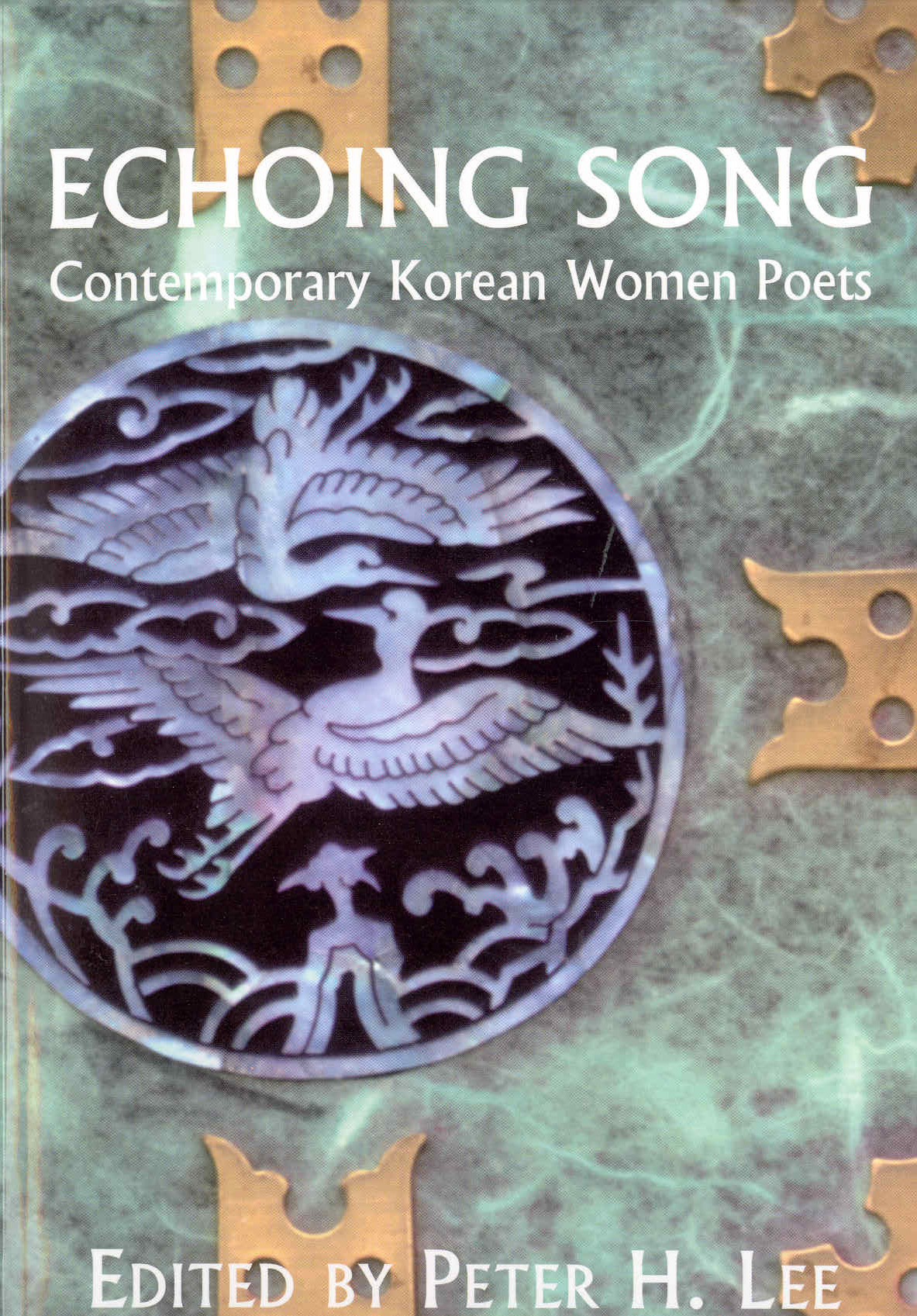
Poetry시 | 한국현대여류시인선(前 한국문학 번역지원사업 지원) Echoing song
저자 ㅣ 역자 Peter Lee이학수 외
출판사 USA미국 화이트 파인(White Pine) ㅣ 출판일 2005(2000 지원)
한국현대여류시인선Echoing Song: Contemporary Korean Women Poets
노향림 외 作/ 피터 리 譯/ 미국 White Pine 刊
『Pine River and Lone Peak』(하와이대출판부)로 대산문학상 번역상을 수상한 UCLA 이학수 교수가 한국현대 여성시인 18명의 대표시 15편씩을 한권에 묶은 번역서를 펴냈다. 노향림, 천양희, 강은교, 문정희, 최승자, 김정란, 이진명, 김혜순, 박소원, 나희덕 등 한국의 손꼽히는 여성시인들의 관심사, 시적 취향 등이 잘 반영되어 있는 시들을 선정하여 선집을 구성하였다. 작가별로 시를 분류하여 수록하였고 그 시작 부분에 작가가 직접 쓴 「Why I Write」라는 간단한 메시지를 실은 점이 이색적이다. 2000년 지원.
Echoing Song: Contemporary Korean Women Poets
Noh Hyaing-Lim et al.(Authors). Peter H. Lee(Editor & Translator)/USA: White Pine Press,2005
Professor Lee(Peter) Hak-Su, who received the Daesan Literary Award for Pine River and Lone Peak(Univ.of Hawai's Press), translated Echoing Song and bound together 15 major poems by 18 modern Korean female poets. Of the finest female poets such as Noh Hyang-Lim, Cheon Yang-Hee, Kang Eun-Gyo, Mun Jeong-Hui, Choi Seong-Ja, Kim Jeong-Nan, Lee Jin Myeong, Kim Hye-Sun, Park So-Won, and Na Hui-Deok, poems best providing an insider's view into the interests and the poetic preferences of a poet were chosen for this anthology. -

Fiction소설 | 당신들의 천국(前 한국문학 번역지원사업 지원) Your Paradise
저자 이청준 ㅣ 역자 이명희,Timothy Tangherlini 티모시 탱걸리니
출판사 USA미국 그린 인티거(Green Integer) ㅣ 출판일 2004(2000 지원)
Your Paradise 당신들의 천국
이청준 作/ 제니퍼 리,티모시 탱걸리니 共譯/ 미국 그린인티거(Green Integer) 刊
지배와 피지배의 관계를 다룬 중견작가 이청준의 장편소설이 미국에서 번역, 출간됐다. 1976년에 첫 간행된 이 소설은 나병환자들의 거주지 소록도를 배경으로 소록도 병원장으로 취임한 의사 조백헌과 나환자들과의 미묘한 관계, 정신적 방황과 애환을 실감있게 묘사했다. 남다른 신념과 적극적인 노력을 통해 소록도를 '당신들의 천국'이 아닌 '우리들의 천국'으로 만들려 했던 조백헌과 나환자인 소록도 주민들간의 갈등과 조심스러운 화해 의지를 담고 있다. 이청준의 작품은 영어, 불어, 독일어, 스페인어 등 각국 언어로 번역되어 활발하게 소개되고 있다. 『당신들의 천국』은 1993년 프랑스, 2003년 스페인에서 각각 출판된 바 있다. 2000년 지원.
Your Paradise
Yi CHong-Jun(Author)/ Jennifer Lee, Timothy Tangherlini(Translators)/ USA:Green Intiger,2004
Domination and submission is the foci of this leading writer's full-length novel, and by showing a symbolic miniature copy of Korean society between the 1970's and the 1980's, this book reexamines the meaning of life. Your Paradise(1976) realistically narrates within Sorok Island, the leper colony, the lives ad the subtle forces between the new director of the island hospital, Jo Bak-Heon and the wandering leper patients. Jo Bak-Heon and the leper citizens' extraordinary will and labor, in transforming Sorok Island from 'Your' Paradise to 'Our' Paradise, parallel the conflict and search for reconciliation between modern day Korea and its people. -

Poetry시 | 하늘에 핀 검은 꽃(前 한국문학 번역지원사업 지원) Black Flower in the Sky
저자 정기석 ㅣ 역자 Naoshi Koriyama, Elizabeth Ogata
출판사 USA미국 KT DID ㅣ 출판일 2000(1998 지원)
하늘에 핀 검은 꽃 Black Flower in the Sky
정기석 作 / 고리야마 나오시(郡山直), 엘리자베스 오가타(Elizabeth Ogata) 共譯 / 미국 Katydid 刊
1992년 발표된 『태양의 북소리』는 1945년에 일어난 히로시마 원폭투하를 다룬 시집으로 갓 결혼한 신랑을 시적 화자로 등장시켜 원폭의 참상속에서 꽃피운 헌신적 사랑을 서정적으로 그린작품이다. 『태양의 북소리』는 우리나라 보다는 일본에서 더 유명한 시집이다. 지난 94년 우리나라에서 한국시를 전공한 일본인 古賀博文(고가 히로후미, 번역가) 씨에 의해 일본어로 번역되어 『廣島の カモメ 히로시마의 갈매기』란 제목으로 葦書房 출판사에서 출판되자마자 1만부 이상 팔려 베스트셀러가 되었다. 원폭의 직접적인 피해자인 일본인들의 심금을 울린 이 시집은 이후 부네 메피스토(Buhne-Mephisto) 극단에 의해 연극으로 만들어져 히로시마, 동경, 오사카, 후쿠오카 등지를 순회하며 공연되었고, 공연때마다 객석을 눈물바다로 만들어 일본 언론의 집중적인 조명을 받기도 하였다.
Black Flower in the Sky
Chong Ki-Seok (Author)/ Koriyama Naoshi, Elizabeth Ogata (Translator)/ USA: Katydid, 2000
Black Flower in the Sky, published in 1992, deals with the 1945 nuclear bombing in Hiroshima: selfless love blooming amidst the ashes becomes lyric corporeal through the poetic speaker, a just married groom. Black Flower in the Sky is better known in Japan than in Korea: studying Korean Poetry in Korea in 1994, Koriyama Naoshi translated the poem into Japanese under the title Gulls of Hiroshima. Upon publication by Katydid, over ten thousand copies were sold, making it a bestseller: this book pulled Japanese heartstrings, the direct victims of the nuclear attack. Buhne-Mephisto later adapted it for theatre; plays were performed on tour in Hiroshima, Tokyo, Osaka, and Fukuoka, where each met with a sea of tears from the audience, and consequently, much attention by the Japanese media. -
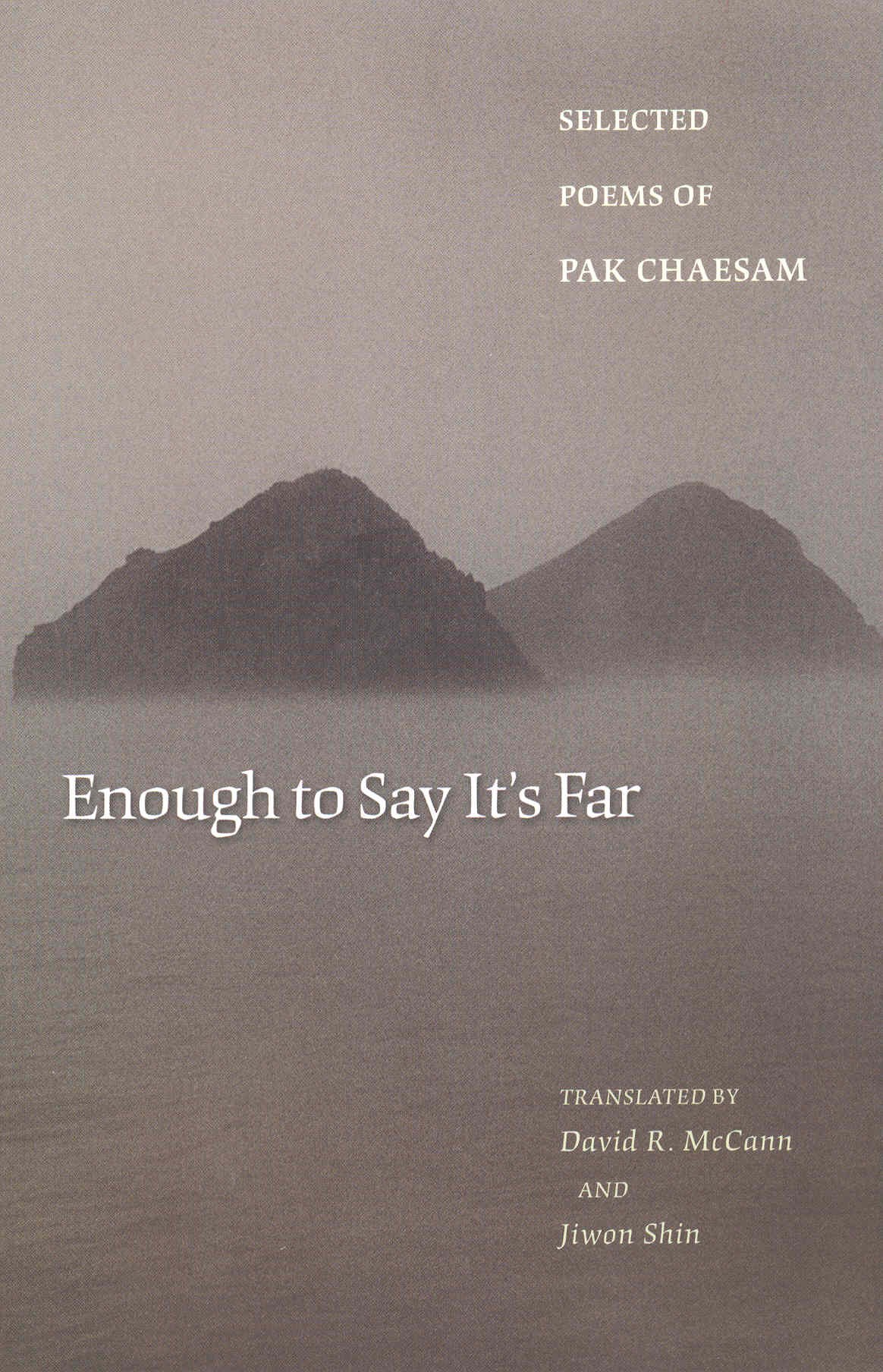
Poetry시 | 박재삼 시선(前 한국문학 번역지원사업 지원) Enough to sat it's far
저자 박재삼 ㅣ 역자 신지원, David McCann데이비드 맥캔
출판사 USA미국 프린스턴대 출판부 ㅣ 출판일 2006(1997 지원)
Enough to Say It's Far 박재삼 시선집
데이비드 맥켄·신지원 共譯/ 프린스턴대 출판부 刊
한국 현대시단의 대표적인 서정시인 박재삼의 시선집이 프린스턴대 ‘로커트(Lockert) 도서관 번역시 시리즈’ 중 한 권으로 번역, 출간됐다. 데이비드 맥켄 하버드대 교수와 신지원 U.C.버클리 교수가 번역한 이번 시집은 생전의 박재삼 시인이 직접 고른 69편의 시가 수록돼 있는데 미국의 계관시인 로버트 핀스키가 호평을 하는 등 예상을 뛰어넘는 관심을 받고 있다. ‘로커트 시리즈’는 스페인의 사무엘 하나기드, 그리스의 콘스탄티노스 카바피, 1963년 노벨상 수상자 세페리아데스 등 유명 시인들의 작품만을 엄선해서 수록하는 시리즈인데 맥켄 교수는 이 시리즈에 포함됐다는 것만으로도 한국 시의 위상이 달라지고 있음을 보여주는 사례라고 밝혔다. 맥켄 교수는 향후 ‘박재삼 시선집’의 낭독회도 준비하고 있다. 1997년 지원.
Park Jae-Sam: Selected Poems
Park Jae-Sam(Author)/ David R. McCann, Shin Ji-Won(Translator)/ USA: Princeton Univ. Press, 2006
Most notable of Park Jae-Sam’s delicate, touching verse, Chunhyang’s Heart and Tears of Autumn River reproduce the classical timbre of Korean lyric poetry. Park finds subject matter in everyday life and nature. To him, nature embodies life’s reason: Nature is a cosmos of pure, eternal beauty. Some 180 poems will be printed in this edition. -
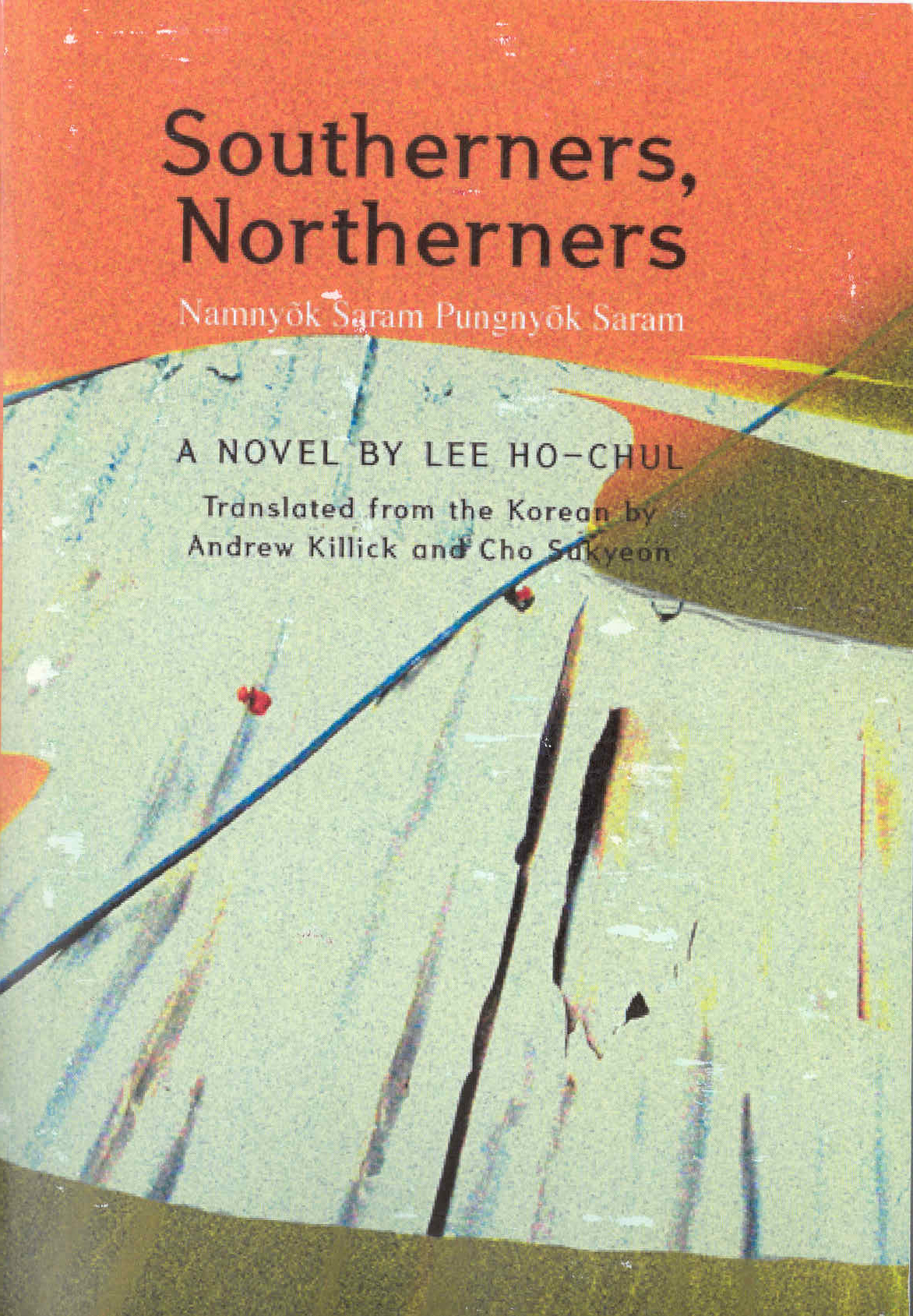
Fiction소설 | 남녘사람 북녁사람(前 한국문학 번역지원사업 지원) Southerners, Northerners
저자 이호철 ㅣ 역자 조숙연, Andrew Killick앤드루 킬릭
출판사 USA미국 이스트 브리지(East Bridge) ㅣ 출판일 2004(1997 지원)
남녘사람 북녁사람 Southerners, Northerners
이호철 作/ 앤드루 킬릭,조숙연 共譯/ 미국 이스트 브리지(East Bridge) 刊
작가가 1980년대 중엽부터 써왔던 작품으로 남북 문제에 대한 작가의 시각을 밑자락에 깔고 있는 연작소설이다. 1950년 7월 고3 소년으로 인민군에 동원되었다가 그해 10월 초에 국군의 포로로 잡힌 후 풀려나기까지 작가의 직접 체험이 들어있다. 해방 직후부터 한국전쟁까지를 배경으로 작가만의 독특한 사상을 정리해냈다는 평을 받으며 1996년 제4회 대산문학상을 수상하였다. 폴란드를 비롯하여 일본, 독일, 프랑스 등지에도 번역, 소개된 작가의 대표작이다. 1997년 지원.
Southerners, Northerners
Lee Ho-cheol(Author) / Andrew P.Killick, Cho Sook-Yeon(Translators) / USA:EsatBridge,2004
Spread with the author's sensibility of the North-South division. Southerners, Northerners illuminates, in serial form, the work of over 20 years of preparation. The story recounts the actual experiences of the author, mobilized in the People's Army as a high school student in July 1950, held, and then later released as prisoner in October that same year. The writer uses a timeframe as the background beginning in post-independence and ending with the Korean War, against the composition of his unique ideology. This method proved highly successful and the book gained recognition, receiving the Fourth Daesan Literary Awards in 1996. With Poland in 1999, Japan in 2000, and Germany in May 2002, various translations have been released and well received, with a French edition due out in 2003. -

Poetry시 | 미시령 큰 바람(前 한국문학 번역지원사업 지원) Strong Winds at Mishi pass
저자 황동규 ㅣ 역자 Seong-Kon Kim 김성곤,Dennis Maloney
출판사 USA미국 White Pine ㅣ 출판일 2001.08.01(1996 지원)
미시령 큰바람Strong Winds at Mishi Pass
황동규 作/ 김성곤 譯/ 미국 화이트 파인 刊
1995년도 제 3회 대산문학상 수상작으로 자아의 삶과 정체성 추구를 담은 황동규 시인의 시집이다. 데니스 멀로니 화이트 파인 출판사 사장이 번역을 도왔다. 황동규 시인의 작품은 독어와 불어, 서반아어로도 번역되어 있다. 여행의 본원적 의미를 물으며 시와 삶의 오랜 여행에서 체득한 실천적 경험을 명명한 극서정시 양식으로 형상화 해낸 작품으로 좋은 시란 무엇인가를 보여주고 있다. 1996년 지원.
Strong Winds at Mishi Pass
Hwang Tong-Gyu (Author)/ Kim Seong-Kon, Dennis Maloney (Translator)/ USA: White Pine, 2001
The winner of the Third Daesan Literary Awards in 1995, Strong Winds at Mishi Pass, a joint translation by Seoul University Professor of English Literature, Kim Sung-gon, and the president of White Pine Press, Dennis Maloney, explores identity and self. Applauded as apotheosis of practice acquired through the journey of time made dramatic lyric, Strong Winds questions the original meaning of 'journey' while itself a demonstration of truly admirable poetry. Following the collaboration effort of Yi Chong-Jun et al, The Snowy Road and Other Stories in 1993, other White Pine Press publications include Heart's Agony by Kim Ji-Ha, and the Park Wan-Seo compilation, A Sketch of the Fading Sun. Strong Winds at Mishi Pass Hwang Tong-Gyu (Author)/ Kim Seong-Kon, Dennis Maloney (Translator)/ USA: White Pine, 2001 The winner of the Third Daesan Literary Awards in 1995, Strong Winds at Mishi Pass, a joint translation by Seoul University Professor of English Literature, Kim Sung-gon, and the president of White Pine Press, Dennis Maloney, explores identity and self. Applauded as apotheosis of practice acquired through the journey of time made dramatic lyric, Strong Winds questions the original meaning of 'journey' while itself a demonstration of truly admirable poetry. Following the collaboration effort of Yi Chong-Jun et al, The Snowy Road and Other Stories in 1993, other White Pine Press publications include Heart's Agony by Kim Ji-Ha, and the Park Wan-Seo compilation, A Sketch of the Fading Sun. -
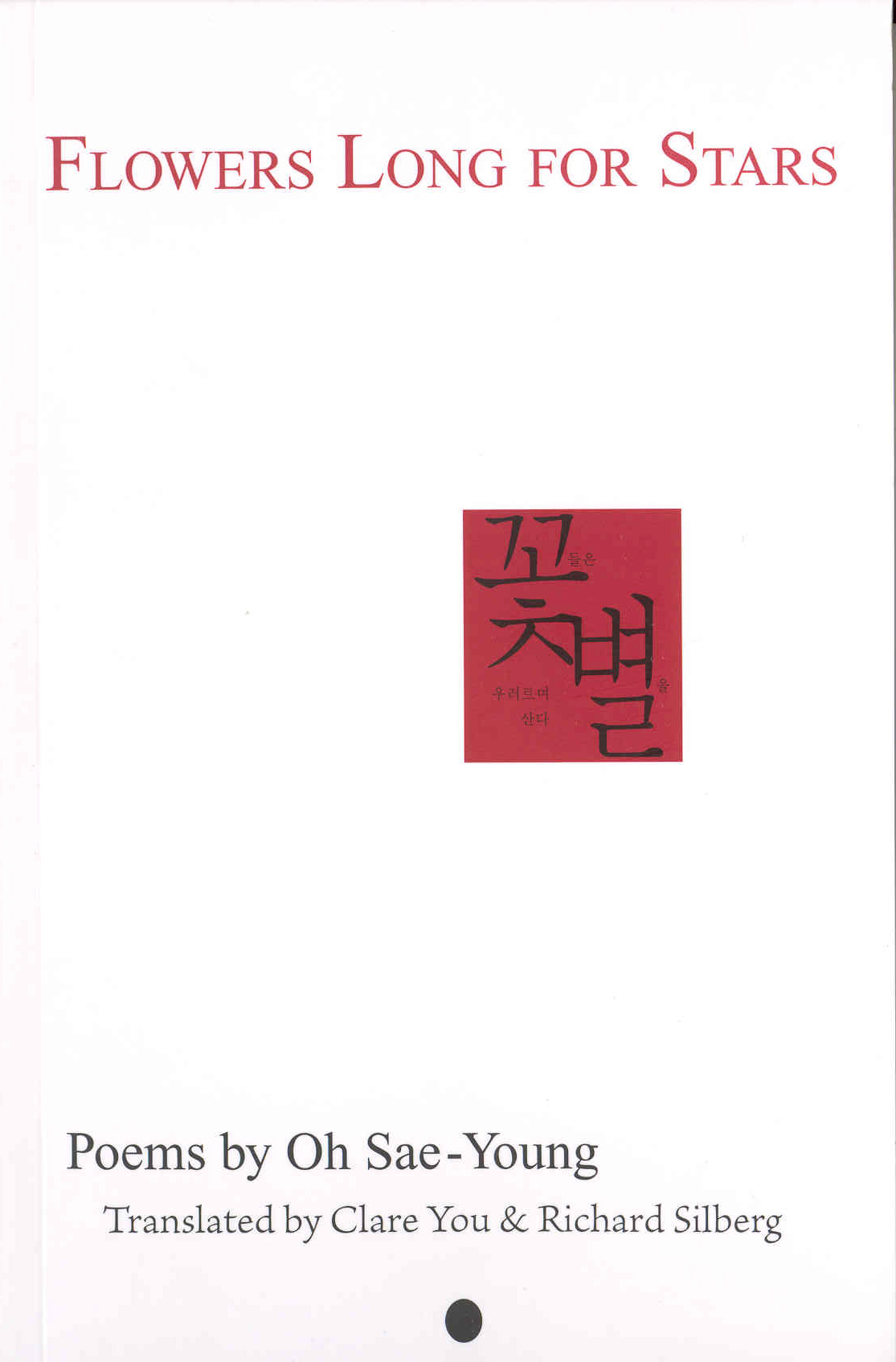
Poetry시 | 꽃들은 별을 우러르며 산다(오세영 시선)(前 한국문학 번역지원사업 지원) Flowers long for stars
저자 오세영 ㅣ 역자 Clare You 임정빈,Richard Silberg
출판사 USA미국 Tamal Vista ㅣ 출판일 2005.07(1996 지원)
꽃들은 별을 우러르며 산다Flowers long for Stars
오세영 作/임정빈,로버트 실버그 譯/미국 Tamal Vista 刊
인간 존재의 실존적 고뇌를 서정적으로 노래하는 시인 중 한 사람인 오세영의 영역 시집이다. 그의 11권의 시집 중 『가장 어두운 날 저녁에』 『불타는 물』 『사라의 저쪽』 등 1982년에서 1994년 사이에 발표된 7권의 시집에서 선정한 59편을 수록하였다. 영어권에서 한국문학 출판에 적극 나서고 있는 타말 비스타(Tamal Vista)에서 한국문학 작품으로는 고은 시집 이후로 두 번째 출판한 작품이다. UCB의 임정빈 교수와 시인이자 한국어에도 능숙한 리처드 실버그 팀이 번역하였다. 1996년 지원.
Flowes Long for Stars
Oh Sae-Yooung(Author)/ Clare Chung-Bin Yim You,Richard Silberg(Translators) /USA:Tamal Vista,2005
Existential anguish is the premise and impetus of Oh Sae-Young's lyrical ballads: His songs start from the scars of existence and the realization of the finite. Oh chooses to explore ontological authenticity through and Oriental mode of truth called umyeong("the nameless" in Korean). Mumyoung is a Buddhist term for the determined, anxious state of mind not yet achieving the essence of enlightenment. His songs are situated on a journey from this state of mumyeoung to the fundamental search for the eternal and the infinite. Through a process of awakening, these verses propose a virtuous mode of life which should be followed by the enlightened "I". -

Fiction소설 | 저문 날의 삽화(박완서 중단편선)(前 한국문학 번역지원사업 지원) A Sketch of the Fading Sun
저자 박완서 ㅣ 역자 Hyun-jae Yee Sallee 이현재
출판사 USA미국 White Pine ㅣ 출판일 1999(1995 지원)
저문 날의 삽화 A Sketch of the Fading Sun
박완서 作 / 이현재 譯 / 미국 White Pine Press 刊
이 소설집에는 표제작인 「A Sketch of the Fading Sun 저문 날의 삽화」를 비롯해 「During Three Days of Autumn 그 가을의 사흘 동안」 「Poverty That is Stolen 도둑맞은 가난」 「Momma's Stake 엄마의 말뚝」연작(連作) 등 총 6편의 작품이 수록돼 있다. 이 소설집은 근대에서 현대에 이르기까지 사회의 중추인 서민들의 슬픔과 기쁨, 패배와 승리를 섬세한 언어로 생생하게 묘사하고 있다. 박완서의 소설은 물신주의와 분단의 상처, 여성적 삶의 상처, 근대사의 질곡 등 다채롭고 의미있는 우리 사회의 국면들을 예술적으로 형상화하는 데 성공을 거두고 있어 소설로서의 재미뿐 아니라 한국의 역사와 문화에 대한 지식도 함께 주고 있다는 평을 받고 있다.
A Sketch of the Fading Sun
Park Wan-Suh (Author)/ Tina Sallee (Translator)/ USA: White Pine, 1999
Six works including the title sake, A Sketch of the Fading Sun, During Three Days of Autumn, Poverty That is Stolen, and the serial a mom’s Stake, and more, are explored as exquisite voice brings to life sorrow, joy, defeat and triumph of modern, to current, working—backbone of society—class. Critically acclaimed for not just its entertainment value but for its insight into Korean history and culture, Park Wan-Suh succeeds in artistically visualizing various-and meaningful-facets of our society such as fetishism, a woman’s scars, the scars left by partition, and the shackles of modern history. -

Fiction소설 | 한국 현대중편소설선(前 한국문학 번역지원사업 지원) The Golden Phoenix
저자 이문열 ㅣ 역자 Daisy Lee Yang 데이지 양, Suh Ji-moon 서지문
출판사 USA미국 Lynne Rienner ㅣ 출판일 1998(1995 지원)
금시조 - 한국현대중단편선 The Golden Phoenix
이문열 外 作 / 서지문, 데이지 양(Daisy Yang) 共譯 / 미국 Lynne Rienner 刊
한국문학의 번역을 꾸준하게 해 온 서지문 교수와 데이지 양 교수의 번역으로 출간된 이 책에는 한국현대 문학의 중진작가들의 단편선집이다. 이문열의 「금시조」를 비롯하여 이문구의 「일락서산」, 오정희의 「불망비」, 최윤의 「열세가지 이름의 꽃향기」, 윤후명의 「높새의 집」, 윤흥길의 「장마」, 김영현의 「그리고 아무말도 하지 않았다」등 총 7작품이 실려 있다. 역자 서문의 한국문화 및 역사에 대한 간략한 소개를 통해 독자들의 이해를 돕고 있다.
The Golden Phoenix: Seven Contemporary Korean Short Stories
Yi Mun-Yol (Author)/ Suh Ji-Moon, Daisy Yang (Translator)/ USA: Lynne Rienner, 1998
The fruit of the two Professors unfailing in their translations of Korean literature, Seo Ji-Moon and Daisy Yang, this book carries seven short stories of popular modern Korean writers: Yi Mun-Yol’s The Golden Phoenix, Yi Mun-Gu’s The Sun Sets in the Western Hills, Oh Jung-Hee’s Unforgettable Rain, Choi Yun’s The Flower Scent of Thirteen Names, Yoon Hoo-Myung’s The House of Nopsae, Yoon Heung-Gil’s Rainy Spell, Kim Young-Hyun’s And Said No More. The brief introduction to Korean culture and history in the translator’s preface assists reader’s understanding. -

Fiction소설 | 난장이가 쏘아올린 작은 공(前 한국문학 번역지원사업 지원) The Dwarf
저자 조세희 ㅣ 역자 Bruce Fulton
출판사 USA미국 풀턴미 하와이대 출판부 ㅣ 출판일 2006.10(1994 지원)
난장이가 쏘아올린 작은 공The Dwarf
조세희 作/ 브루스 풀턴,주찬 풀턴 共譯/미국 하와이대 출판사 刊
부연설명이 필요 없을 정도로 20세기 한국소설사의 고전이 된 『난쏘공』이 드디어 영어권에서 빛을 보게 되었다. 『난쏘공』은 그 위상에 걸맞게 그동안 불어, 독어, 러시아어 등 세계 주요언어로 번역, 출간되었던 데 반해 정작 가장 중요한 영어권에서는 아직 소개되지 못하고 있었다는 점을 감안하면 이번 출간의 의의는 더욱 각별하다 하겠다. 지난 1978년 출간된 이 소설은 1970년대 도시 하층민들의 비인간적인 삶의 양태를 상징적인 언어로 묘사하고 있는데 출간 30년이 가까워오는 오늘날까지도 대학생들의 필독서로 대접받고 있다. 책을 출판한 하와이대는 전통적으로 아시아 문학에 대한 연구가 활발한 곳이고 한국학과 한국문학에 대한 연구 역시 가장 왕성하게 이루어지고 있는 미국 대학 중 한 곳이어서 소설의 출간과 관련한 파급효과 역시 클 것으로 기대된다. -

Drama희곡 | 오태석희곡집(前 한국문학 번역지원사업 지원) The Metacultural Theater of OH TAE-SOK
저자 오태석 ㅣ 역자 Ah-jeong Kim 김아정, Robert B. Graves
출판사 USA미국 Univ. of Hawaii ㅣ 출판일 1999(1994 지원)
오태석희곡집 The Metacultural Theater of Oh T'ae-Sŏk : Five Plays from the Korean Avant-Garde
오태석 作 / 김아정, 로버트 B. 그레이브스(Robert B. Graves) 共譯 / 미국 Univ. of Hawaii Press 刊
극작가 겸 연출가 오태석의 대표희곡 5편을 영역한 희곡집이다. 이 희곡집에는 제 1회 대산문학상 희곡부문 수상작인 「심청이는 왜 두 번 인당수에 몸을 던졌는가」를 비롯하여「춘풍의 처」「부자유친」「태」「자전거」등 오태석의 극작세계를 대표하는 5편의 희곡이 실려있다. 이 책에 실린 5편의 희곡은 오태석의 예리한 실험감각이 잘 드러나는 대표작들로서 특히 한국의 고전과 역사를 글의 소재로 하되 여기에 현대적 해석을 가함으로써 한국인의 정서를 예술적으로 형상화해 낸 작품들이다.
The Metacultural Theater of Oh T'ae-Sŏk : Five Plays from the Korean Avant-Garde
Oh, T’ae-Sŏk (Author)/ Kim Ah-Jeong, Robert B Graves (Translator)/ USA: Univ. of Hawaii Press, 1999
Translations of five plays by Korea's leading playwright cum stage-director, Oh T’ae-Sŏk, The Metaphysical Theatre… consists of the First Daesan Literary Awards prize-winning drama Why did Shimch'ong Throw Herself into the Indang-su (Indang River) Twice, and three other potent plays, Intimacy between Father and Son, Chunpung's Wife and Bicycle. Each piece is essential Oh dramaturgy experimentation incarnate: the manipulation of Korean Classics and history, particularly, by means of combining a contemporary interpretation, engenders an artistic Korean experience. -

Poetry시 | 떠돌이의 시(前 한국문학 번역지원사업 지원) Poems of A Wanderer
저자 서정주 ㅣ 역자 Kevin O'Rourke
출판사 Ireland아일랜드 Dellaus ㅣ 출판일 1995(1993 지원)
떠돌이의 시 Poems of a Wanderer
서정주 作 / Kevin O'Rourke 譯 / 아일랜드 The Dedalus Press 刊 (1995)
이 시집은 우리말을 가장 아름답고 능수능란하게 조탁하는 것으로 평가받는 한국의 대표적 현대 시인인 미당(未堂) 서정주의 시선집이다. 초기 시집 『화사 Flower Snake (1938)』에서부터 『학이 울고간 날들의 시 Poems After The Crane Left(1982)』에 이르기까지 10권의 시집에서 대표작 1백20편을 번역, 수록하고 있다. 이 시집은 미당의 시 세계를 두루 소개하면서도 특히, 『동천 Winter Sky』『질마재 신화 Chilmajae Myths』『떠돌이의 시 Poems of a Wanderer』『학이 울고간 날들의 시 Poems After The Crane Left』 등의 중기와 후기 작품에 초첨을 맞추어 번역, 소개하고 있다.
Poems of a Wanderer
So Chong-Ju (Author)/ Kevin O'Rourke (Translator)/ Ireland: Dedalus, 1995
This anthology is a substantial compendium of the critically acclaimed national poet, Seo Jeong-Ju (penname: Midang), renowned for his command and artistry of the Korean language. Ranging from the early Flower Snake (1938) to Poems After The Crane Left (1982), it draws from a lifetime’s opus of 120 poetry translations in 10 volumes. With a focus on the translation of mid and late works such as Winter Sky, Chilmajae Myths, Poems of a Wanderer, and Poems After The Crane Left, Poems of a Wanderer introduces readers to the Midang’s poetic oeuvre. -

Poetry시 | 배를 별하늘로 띄우며(박제천시집)(前 한국문학 번역지원사업 지원) Sending the Ship Out of the Stars
저자 박제천 ㅣ 역자 Chang Soo Ko 고창수
출판사 USA미국 Cornell Univ. ㅣ 출판일 1997(1993 지원)
배를 별하늘로 띄우며 Sending the Ship Out to the Stars
박제천 作 / 고창수 譯 / 미국 Cornell University East Asia Program 刊
이 시집은 중진시인 박제천 특유의 선적 분위기와 한국적 정서를 잘 드러낸 대표시 80편을 선정하여 번역한 것이다. 박제천 시인의 작품은 한국불교와 도교 및 고전문학에서 시적 상상력을 찾아 언어를 세밀히 다룸으로써 이미지가 선명하게 드러나는 특징을 가지고 있다. 고전적 어법을 지닌 박제천의 시세계를 요약하면 깨달음에의 시적 자기 집중이라 말할 수 있다. 영어로 번역하기 좋은 문장구조를 사용하는 특성 때문에 영문으로 원문의 이미지가 잘 전달되고 있다.
Sending the Ship Out to the Stars
Park Je-Chun (author)/ Ko Chang-Soo (Translator)/ USA: Cornell University East Asia Program, 1997
These selections and translations of 80 poems best reveal the local color of the land and Korean sentiment distinct to highly esteemed poet Park Jae-Chon. His works closely consult Korean Buddhism, Taoism and artistic imagination found in classical literature to bare open a vivid image. In summary, Park’s poetics, with its classical diction, is a poetic self-immersion upon enlightenment. Original images here translate well into English owing to the English attributes of his sentence structure. -
Poetry시 | 화엄경(前 한국문학 번역지원사업 지원) Little Pilgrim
저자 고은 ㅣ 역자 김영무,안선재
출판사 USA미국 패럴랙스(Parallax ) ㅣ 출판일 (1993 지원)
Hwa-um Kyung (Little Pilgrim)
Ko Un(Autho)/ Suh Sung-Chul, Paciencia Ontañon Sanchez(Translators)/USA: Parallax
Hwa-um Kyung relate to concepts of Mahayana (Sans.) dealt with at the beginning of Buddha’s teaching. This is the story of boy Seon-jae, who sets off on a pilgrimage to Nam-in Temple in search of truth, and after meeting fifty-three monks, meets a monk by the name of Moon-su Bo-hyun, and through his teaching, reaches the final stage of enlightenment. In this work, the author uses many poetic and aphoristic expressions. It is said that the difficulties boy Seong-jae suffers in his search for truth make this a humanistic story, and rescue it from the style of sacred literature in which it is written. -
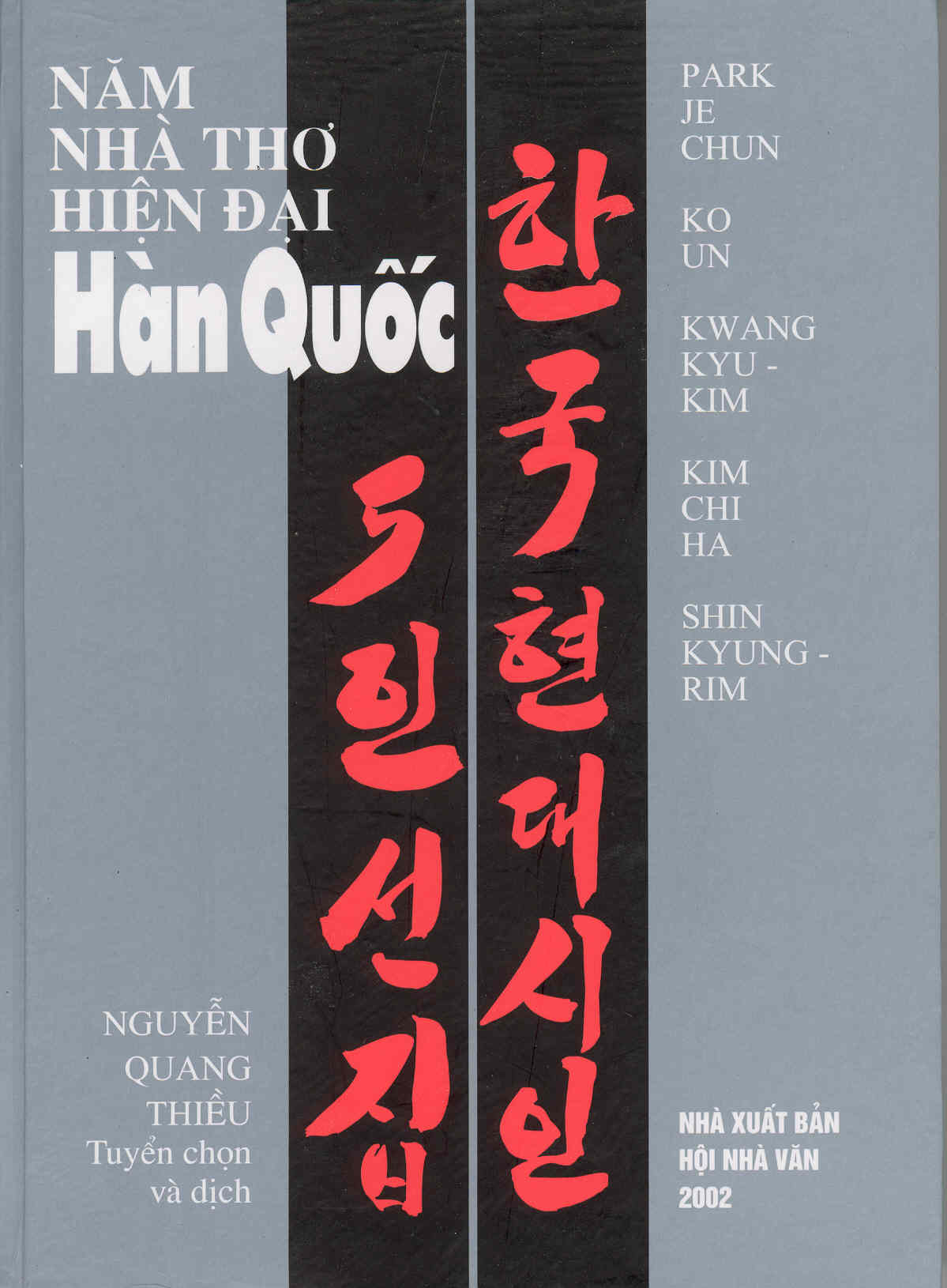
Poetry시 | 한국현대시인 5인선집(前 해외한국문학 연구지원사업 지원) Năm Nhà Thơ Hiện Dai - Hàn Quốc
저자 박제천, 고은, 김광규, 김지하, 신경림 ㅣ 역자 NguyỄn Quang ThiỄu
출판사 Vietnam베트남 Hoi Nha Van Publishing House ㅣ 출판일 2002(2001 지원)
한국현대시인 5인선집 Năm Nhà Thơ Hiện Dai - Hàn Quốc
우옌 쾅티우 譯, 베트남작가동맹출판사 刊
현대 한국을 대표하는 시인 박제천, 고은, 김광규, 김지하, 신경림 등 5인의 작품 3백22편을 번역한 시집이 베트남에서 출판됐다. 번역된 시들은 시인별로 구분되어 각 시인의 사진과 약력 뒤에 실려 있으며 한 작가당 많게는 1백편에 이르는 작품이 소개되어 있어 한국현대시를 포괄적으로 이해하는 데 도움을 주고 있다. 시인으로서 베트남작가동맹 회원인 역자는 이번 작업이 참으로 흥미있고 의미있는 일이었으며 한국의 시는 자신이 접해본 외국시 중 가장 아름다운 것이었다고 밝혔다. 이 책을 출판한 베트남작가동맹출판사는 베트남 최고의 출판사이다. 2001년 지원.
Năm Nhà Thơ Hiện Dai - Hàn Quốc (Modern Korean Poetry)
Nguyen Quang Thieu (Translator)/ Vietnam: Vietnam Writer’s Union, 2000
Essential poets Park Je-Chun, Ko Un, Kim Kwang-Kyu, Kim Ji-Ha and Shin Kyung-Lim grace the pages of this anthology archiving 322 poems. Portions divide into poets, each carrying a photograph and brief biography. Modern Korean Poetry offers synoptic presentation of modern Korean poetry, numbering as many as 100 pieces per poet. The translator, poet and member of Vietnam Writer’s Union, reveals that the work was, to him, both interesting and meaningful, and that out of the foreign poetry he has come across, Korean poetry outshines them all as most beautiful. The Vietnam Writer’s Union Press is a reputed first-rate publisher in Vietnam. -
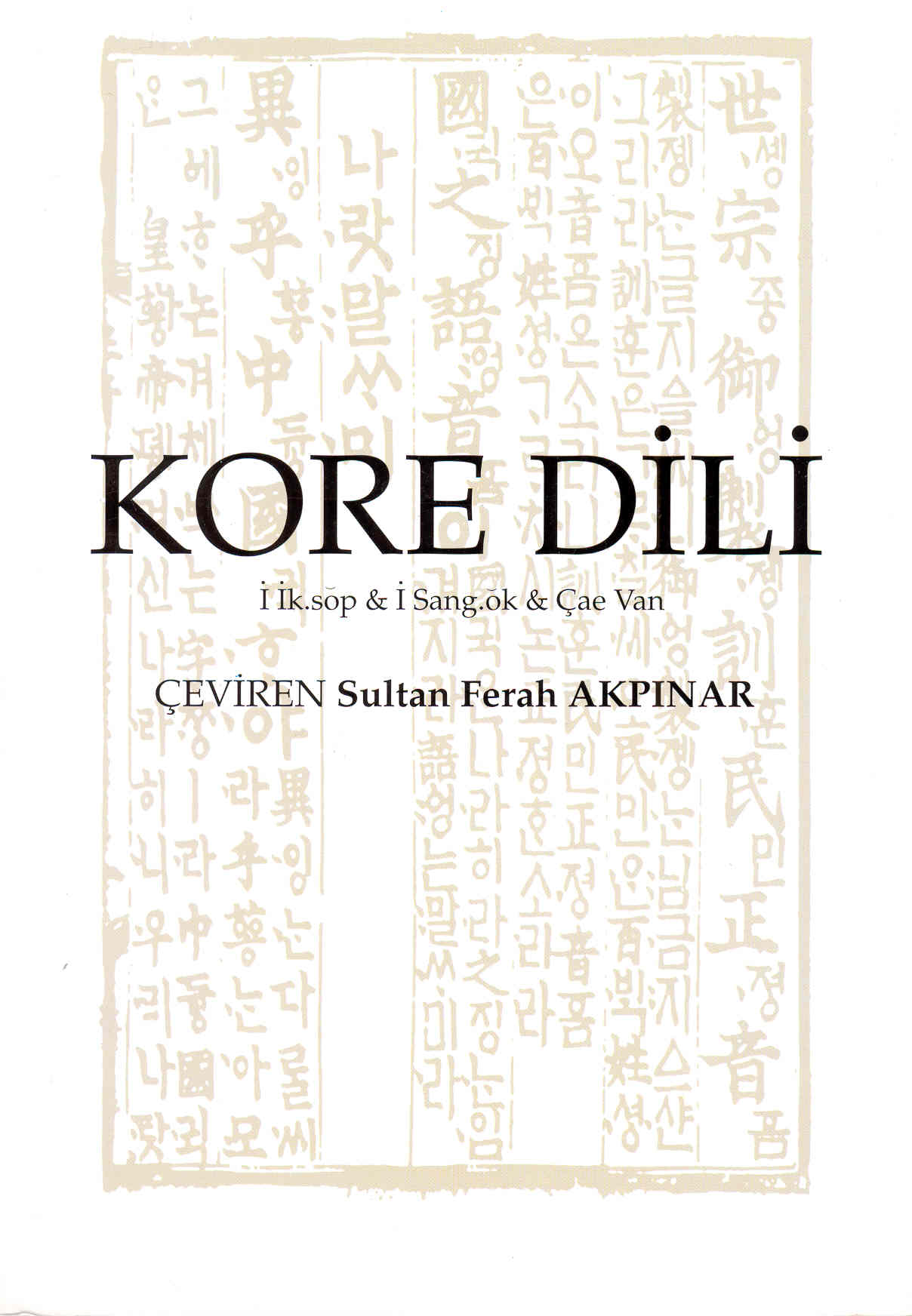
Language어학 | 한국의 언어(前 해외한국문학 연구지원사업 지원) KORE DİLİ
저자 이익섭 외 ㅣ 역자 Sultan Ferah Akpinar
출판사 Turkey터키 Aydogdu ㅣ 출판일 2002(2001 지원)
한국의 언어KORE DiLi
이익섭 著/ 술탄 페라 아크프나르 譯/터키 아의도두 刊
『한국의 언어』는 외국인에게 한국어에 대한 기본적이고 근본적인 인식을 가지도록 하는 것을 목적으로 저술된 한국어 개론서이다. 서울대 대학원에서 한국어학을 전공한 페라씨가 번역하였다. 한국어의 분포, 문자, 계통, 유형적 특징 등 우리말의 기초를 설명하고 고대. 중세, 근대 한국어로 나누어 우리말의 역사와 변천, 방언 등을 설명하고 있다. 한국어 입문자들의 교과서이자 터키에서 출판되는 최초의 한국서적으로 크게 주목받을 것으로 기대된다. 1999년 지원.
KORE DİLİ (The Language fo Korea)
Lee Ik-Sup, et al. (Authors)/ Sultan Ferah Akpinar (Translator)/ Turkey: Aydogdu, 2002
A primer to the language, The Language of Korea details a systematic Korean to foreign learners. Considerate footnotes, by the Seoul National University School of Korean Linguistics-educated Ferah, aid in the understanding of origin, historical background, and derivation of proverbs. The text divides into eight chapters--outline, alphabet/character, phoneme, word and part-of-speech, sentence structure, honorific expression, history, dialect—methodically examining the principle and grammar of the abstruse Korean compounded words and their practical use, fitting for beginners of the Korean language. Kore DİLİ received wide attention as the inaugural Korean book published in Turkey. -
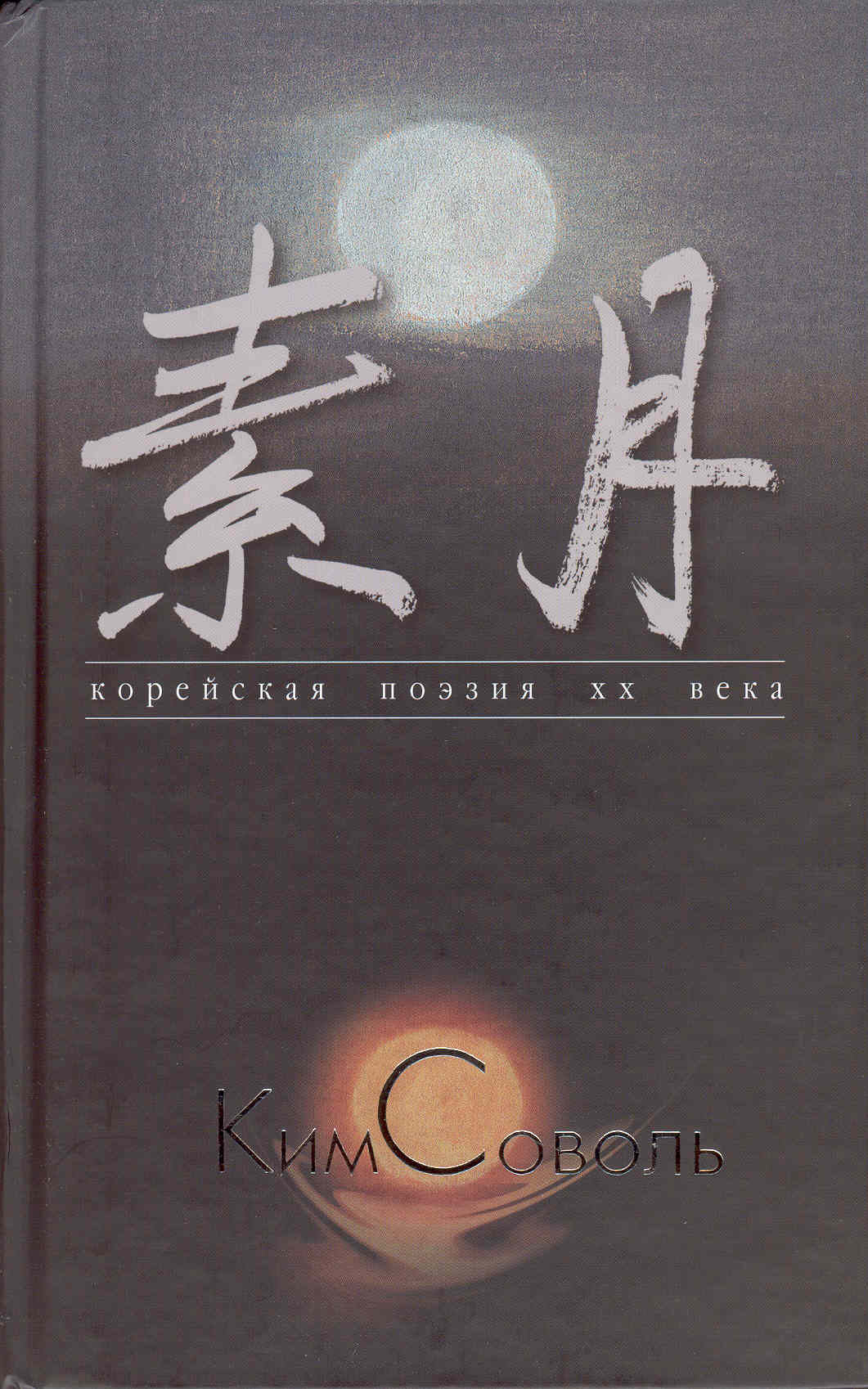
Poetry시 | 진달래꽃 (김소월시선집)(前 해외한국문학 연구지원사업 지원) КИМ СОЛЬ ЛИРИКА
저자 김소월 ㅣ 역자 КИМ РEXO(모스크바 삼일문화원)
출판사 Russia러시아 Первое Марта ㅣ 출판일 2003(2001 지원)
김소월 시집 - 진달래꽃 КИМ СОЛЬ ЛИРИКА
김려호(КИМ РEXO) 外 譯/ Первое Марта 刊
소월 탄생 100주년을 기념하여 러시아에서 번역, 출판된 김소월 시집이다. 김소월은 7·5조의 정형률을 많이 써서 한국의 전통적인 한(恨)을 노래한 시인이라고 평가받으며, 짙은 향토성을 전통적인 서정으로 노래한 그의 시는 오늘날까지도 많은 독자를 확보하고 있다. 이 시집은 고리키세계문학연구소의 김려호 교수와 러시아 시인 에드왈드 발라쇼프가 공동으로 번역하였으며 소월의 시 88편이 번역, 수록되어 있다. 한-러간 민간문화교류 단체인 모스크바삼일문화원이 이 책의 출판에 관한 전체 진행을 맡았다. 2003년에는 시집 출판을 기념하여 모스크바한국문학제를 러시아에서 개최하기도 하였다.
КИМ СОЛЬ ЛИРИКА (Selected Poems of Kim So-Wol)
Kim So-Wol (Author)/ Kim Ryeo-Ho (Translator)/ Russia: Первое Марта, 2003
In tribute to the 100 years of the poet, Kim So-Wol, this Russian edition presents 88 poems translated by Professor Kim Ryeo Ho from the Gorky Institute of the World Literature. Kim So-Wol often used the fixed-form of the 7•5 meter in his verbalizations of the classic Korean han (grief, bitterness); his blend of lyricism and local color draw many followers even today. Publication was directed by the Korea-Russia private culture exchange organization, ПЕРВОЕ МАРТА. The 2003 Moscow Korean Literature Festival took place in Russia in commemoration of the publication. -
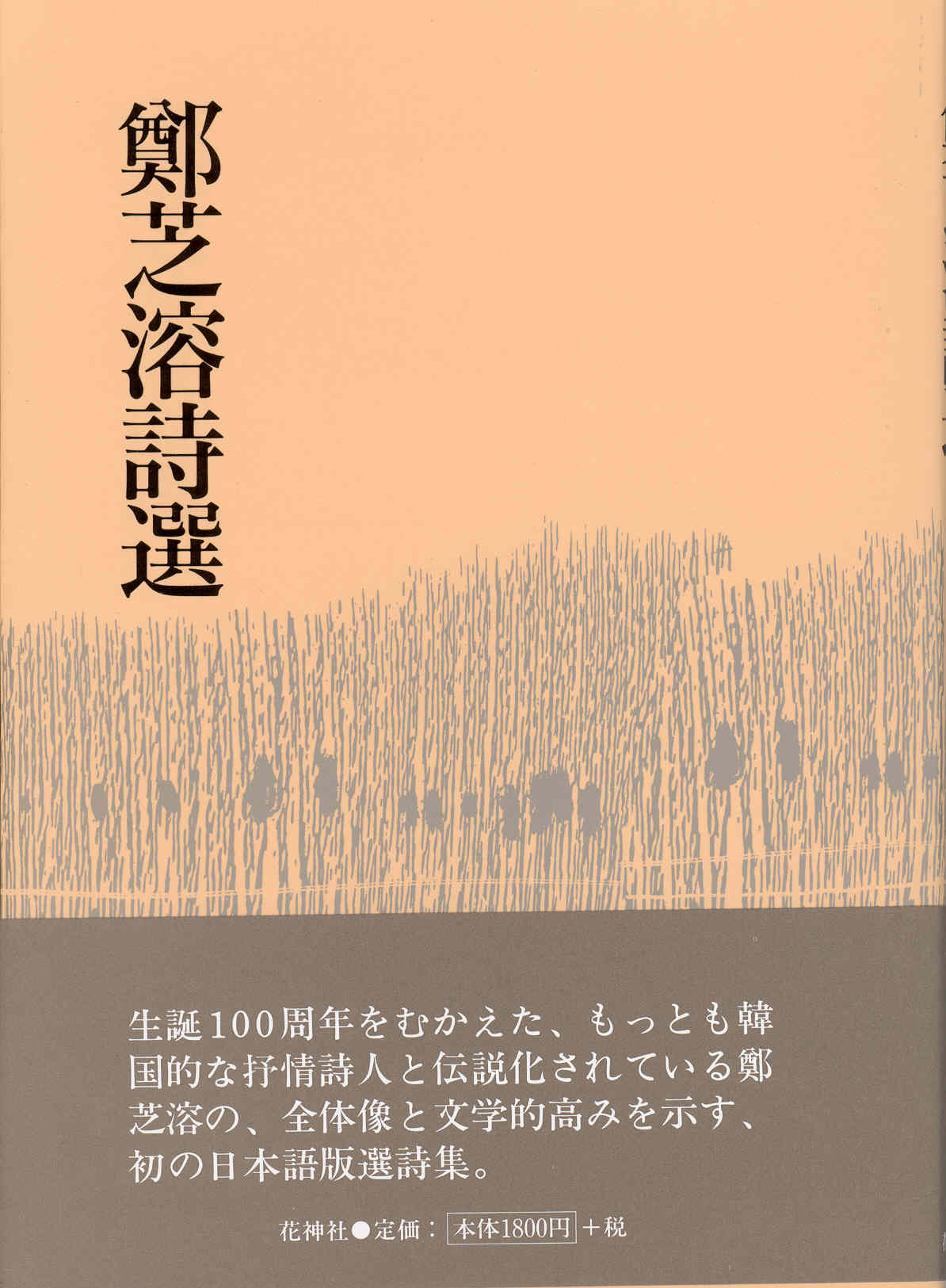
Poetry시 | 정지용시선(前 해외한국문학 연구지원사업 지원) 鄭芝溶詩選
저자 정지용 ㅣ 역자 Oh Yang-Ho 오양호, Sano Masato, Sim Won-Seop 심원섭, Hayasi Dakasi
출판사 Japan일본 花神社 ㅣ 출판일 2002(2000 지원)
정지용 시선 鄭芝溶 詩選
오양호,사노 마사토,심원섭,하야시 다카시 共譯/ 일본 가신샤(花神社) 刊
한국 현대시의 초석을 마련한 정지용 시인의 시선집이 일본의 시 전문 출판사인 花神社에서 출간되었다. 정지용의 시는 그간 일부 작품이 앤솔로지 속에 한데 묶여 소개된 경우는 여러차례 있었으나, 그의 시 세계 전모를 파악할 수 있는 개인 시선집이 번역, 출판된 것은 이번이 처음이다. 이 시집에는 『백록담』(1941)에 수록된 14편과 『정지용 시집』(1935)에 실린 43편 등 총 57편의 시와 김용직 교수의 해설, 시인 연보 등이 수록되어 있다. 한국 모더니즘 시의 거장이자 현대시의 대부라 할 수 있는 정지용의 시 세계 전모가 소개된다는 것은 일본에 대한 한국시사의 균형적인 소개라는 관점에서도 커다란 의의를 갖는다. 2000년 지원.
鄭芝容詩選 (Selected Poems of Jung Ji-Yong)
Jong Ji-Yong (Author)/ Oh Yang-Ho, Sano Masato, Shim Won-Sup, Hayasi Dakasi (translators)/ Japan: 花神社 (Kashinsha), 2002
Jong Ji-Yong, who lay a cornerstone of modern Korean poetry with his Exquisite and unique command of language, meets Japanese audiences in this compendium printed by Kashinsha, an expert publication of poem. There have been instances where his work found the public through selected anthologies of many writers, but this is the first personal collection projecting his whole oeuvre to be translated and published. It presents 14 pieces from Baek-rok-dam (1941), 43 pieces from The Collected Poems of Jong Ji-Yong (1935), for a sum of 57 poems listed with Professor Kim Yong-Jik’s criticism and poet’s chronological history. This full primer to the master poet of Korean modernism and grandfather of contemporary poetry, Jong Ji-Yong, is all the more meaningful in that it is a balanced account of the history of Korean poetry and its introduction to Japan. -
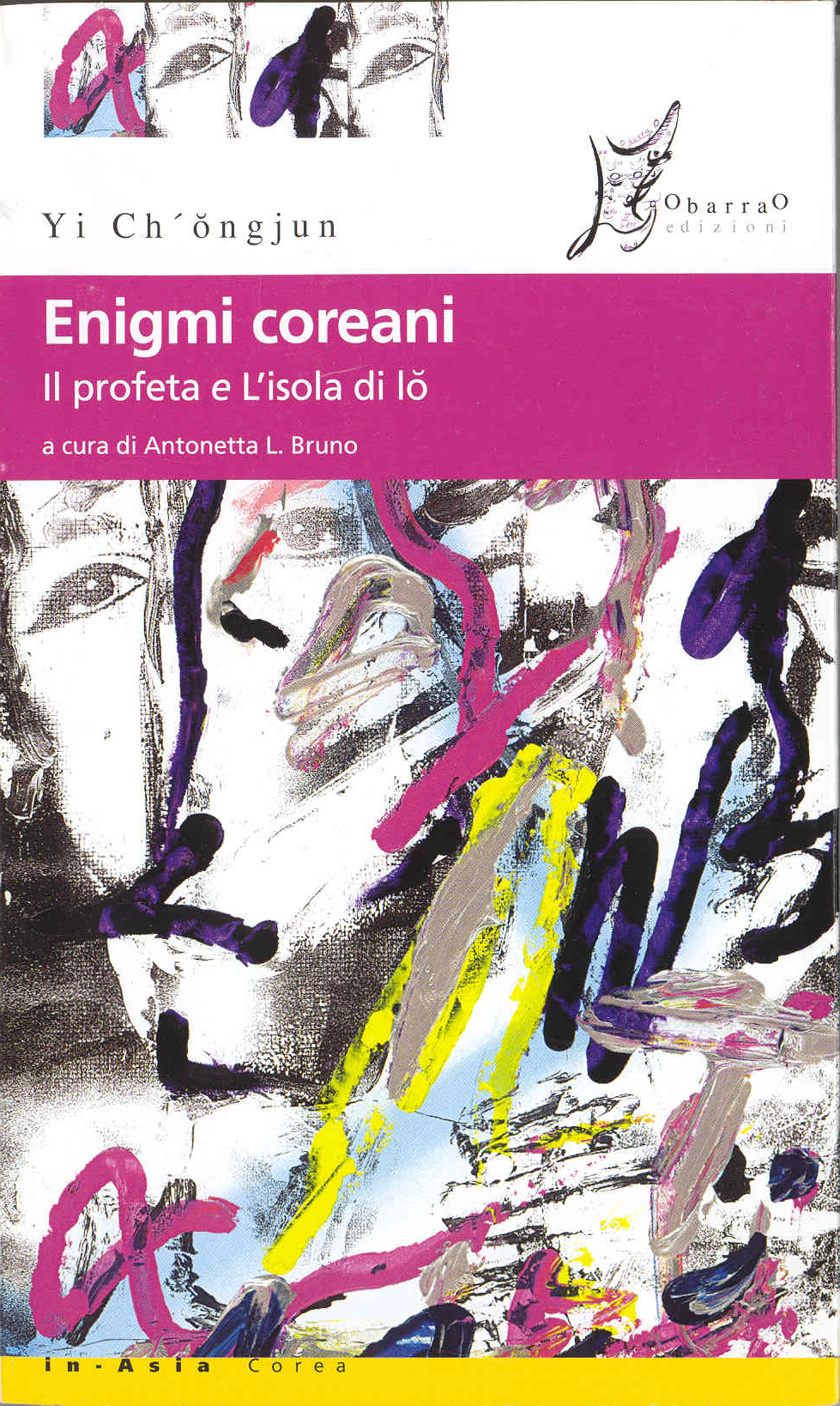
Fiction소설 | 예언자, 이어도(前 해외한국문학 연구지원사업 지원) Il profeta e L'isola di lo
저자 이청준 ㅣ 역자 Antonetta Bruno
출판사 Italy이탈리아 O barra O edizioni ㅣ 출판일 2004(2003 지원)
예언자·이어도Il profeta e L’isola di lo
이청준 作/ 안토네타 브루노 譯/ 이탈리아 오바라오 刊
중진작가 이청준의 「예언자」와 「이어도」가 프랑스에 이어 이탈리아에서도 출간되었다. 「예언자」는 ‘여왕봉’이라는 술집의 단골손님인 나우현의 불길한 예언과 술집에서 벌어지는 일련의 사건을 다루고 있다. 그 과정에서 지배와 복종, 타율적 억압과 자발적 동의, 순응과 일탈 등 권력을 둘러싸고 일어날 수 있는 다양한 양상들이 압축적으로 묘사된 작품이다. 「이어도」 역시 이청준의 사상과 소설 기법이 아름답게 그려진 작품이다. 제주도 사람들이 꿈꾸는 ‘이어도’라는 환상의 섬에 대한 믿음을 소재로 하고 있다. 오바라오(O barra O) 출판사는 이청준 소설 『제3의 현장』을 2001년에 출간한 바 있다.
Il profeta e L’isola di lŏ (The Prophet and Yi-o Island)
Yi Chong-Jun(Author)/Antonetta L. Bruno(Translator) /Italy : O Barra O ,2004
Noted author Cheong-jun Lee’s “Prophet” and “Yi-o Island” were first published in France, and then in Italy. Il profeta (The Prophet) deals with the ominous prediction of Na Woo-Hyun, a regular customer at a bar called the Queen Bee, and with the series of events that happen there. This is a work which, over the course of these events, deals in a concise manner with a variety of the issues surrounding and arising from authority: submission and control, planned restraint and spontaneous consent, adaptation and deviation, etc. In L’isola di lŏ (Yi-o Island), Yi Chong-Jun’s thought and literary technique are beautifully displayed. The work deals with the belief in the imaginary Yi-o Island, dreamed about by the people of Jeju Island. -
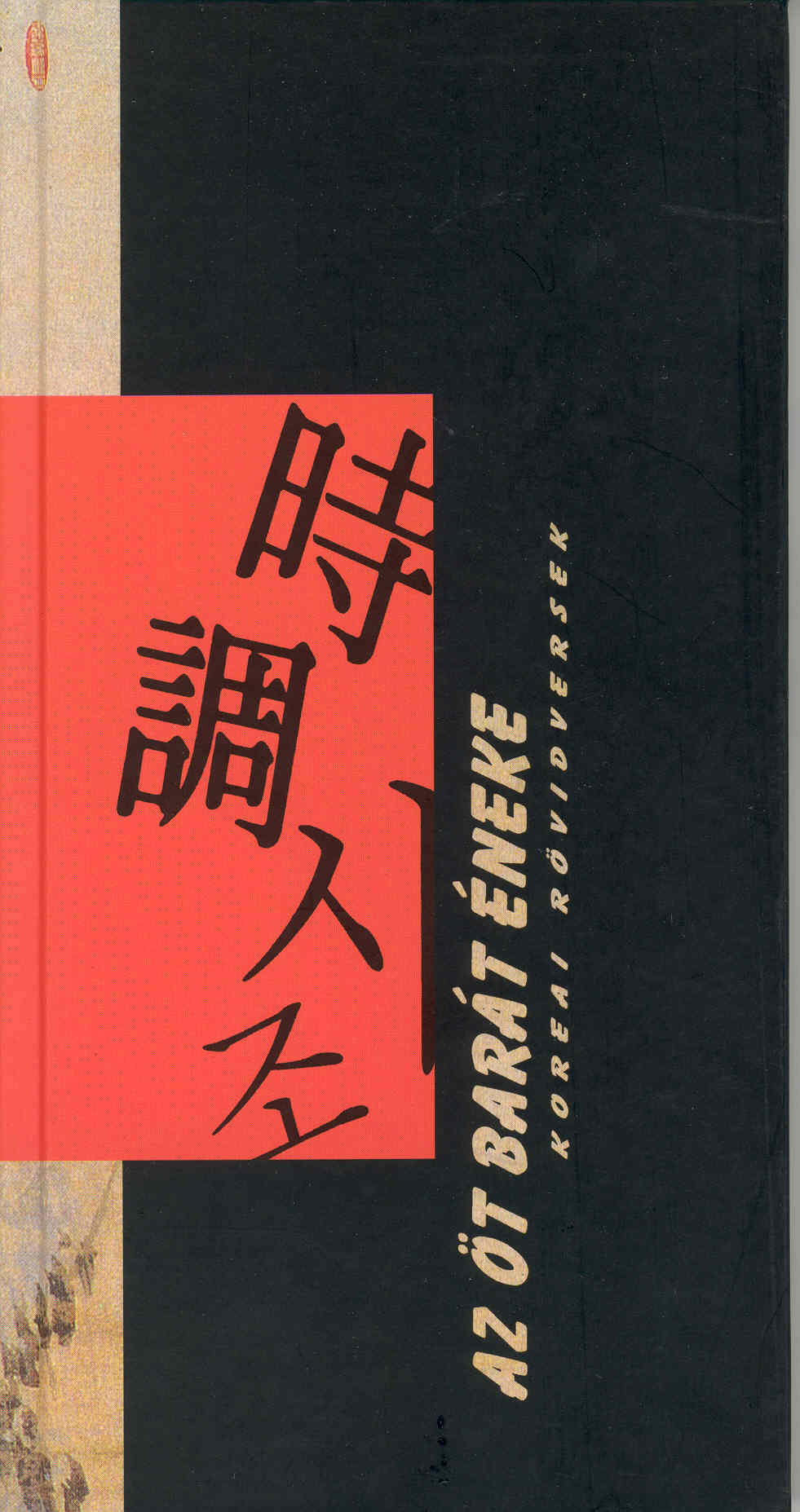
Poetry시 | 오우가(한국의 시조)(前 해외한국문학 연구지원사업 지원) AZ ÖT BARÁT ÉNEKE - KOREAI RÖVIDVERSEK
저자 윤선도 외 ㅣ 역자 Osváth Gábor
출판사 Hungary헝가리 Terebess Kiadó ㅣ 출판일 2002(2001 지원)
오우가 - 한국의 시조 AZ OT BARAT ENEKE - KOREAI ROVIDVERSEK
오시와트 가보르 譯/ 헝가리 테레비스 刊
한국의 시조 1백34수를 담고 있으며 한글로 된 시조 원문과 헝가리어 번역문을 위 아래로 배치하여 실어 독자의 이해를 돕고, 더불어 한국문학 교재로 활용이 가능하도록 한 번역시조집이다. 크게 서문과 시조 번역문이 실린 본문, 작가약력 소개, 색인 등으로 구성되어 있다. 서문에는 한국고전문학의 특징과 한글 소개, 시조의 기원, 발전 및 대표작가 소개 등을 담고 있으며 본문에는 67쪽에 걸쳐 시조 2편의 원문과 번역문을 차례로 싣고 있다. 이 책은 한국과 한국어를 배우는 학생들에게 교재로 사용되어 한국 고전 시문학의 아름다움과 멋을 알리는 데 기여할 것으로 기대된다. 2001년 지원.
Az öt barát éneke - Koreai Rövidversek (Korean Poetry in Classical Chinese)
Yun Son-Do, et al. (Author)/ Osváth Gábor (Translator)/ Hungary: Terebess, 2002
Hungarian translations are arranged line-for-line under Korean originals in this book of translated poetry containing 134 sijo (Korean odes). The structure-preface, body and translation, brief history of author, and index—is functional as a textbook on Korean literature: the preface contains an introduction to the Korean language, the characteristics of classical Korean literature, the origin, evolution and esteemed writers of sijo; the body cites two sijo across 67 pages in the original and translated format, respectively. As a textbook, Koreai Rovidversek guides students learning about Korea and the Korean language on the beauty and charm of classical Korean poetry.

